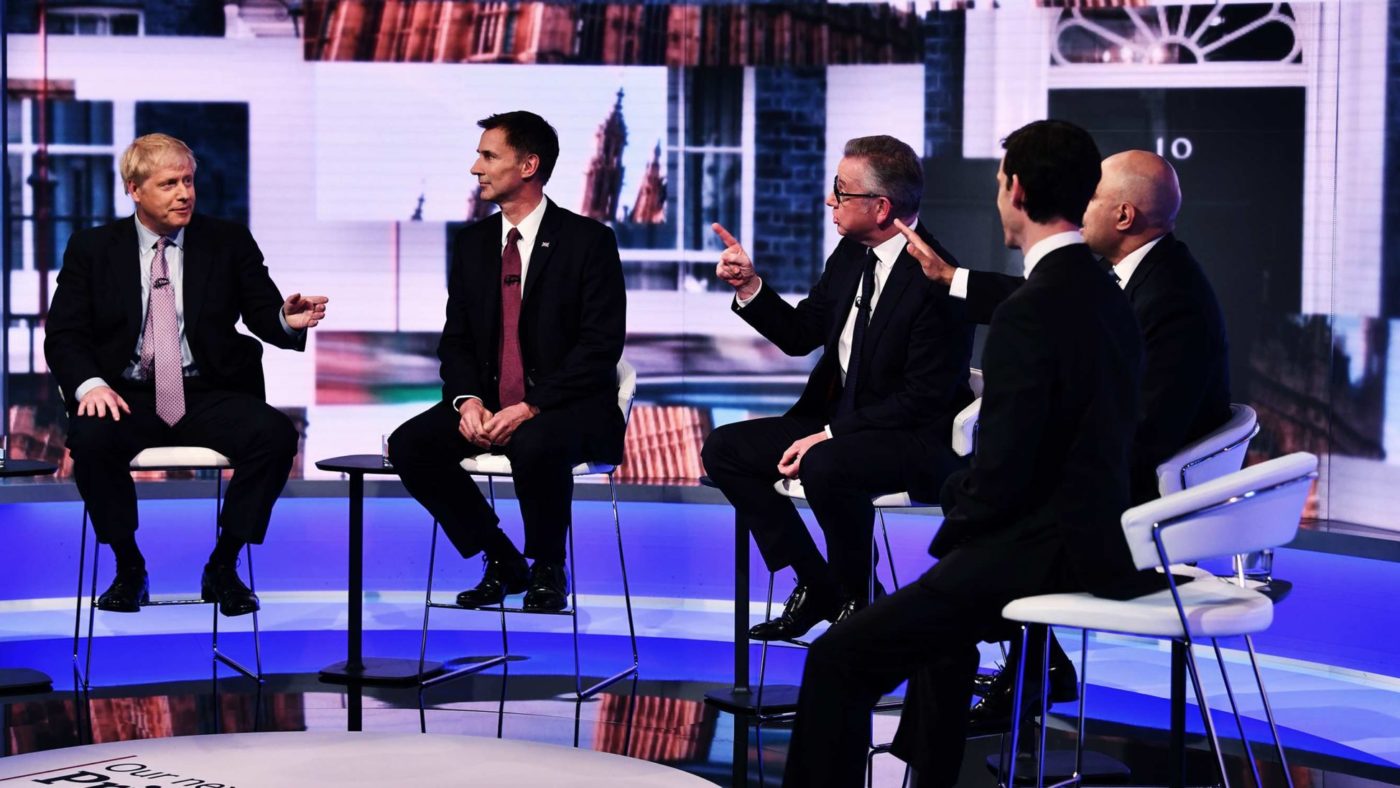The BBC’s leadership debate was a miserable affair. Tory candidates for Prime Minister kept talking over each other in their desperation to deliver a killer attack on one of their colleagues. Emily Maitlis — who has one of the worst records amongst her BBC peers for interrupting guests — performed to type. The set looked like it had been designed for a 1990s boyband. The questions around which the debate revolved — supposedly from the great British public — were posed by, among others, an imam who’d issued anti-Semitic Tweets and a former employee of the Labour Party. Neither your average Joe Publics.
I have no doubt that the BBC will hold an inquest into why this supposedly prestige event descended into such an ugly spectacle. Vetting procedures for questioners will, no doubt, be overhauled. The bar stools upon which the candidates perched in such obvious discomfort will be given to a late-night game show. The overall format for future debates will be finessed.
But these tweaks won’t fix the fundamental problem with these televised political debates. Indeed, televised political debates themselves are the problem.
Popular memories of the greatest moments in American presidential debates are proof enough. None involve a substantial, intellectual dismantling of a candidate’s policy agenda. Instead, they include clever putdowns such as Lloyd Bentsen’s “You’re no Jack Kennedy” torpedo attack on Dan Quayle in 1988. Or they’ve been funny prepared lines of the kind Ronald Reagan delivered against Walter Mondale in 1984. Facing concerns that he was too old to seek re-election for the presidency the former Hollywood actor promised not to exploit his opponent’s youth and inexperience. Everyone laughed and Reagan went on to a landslide victory.
And it’s not just what debaters say that matters but what they look like. While Richard Nixon beat JFK amongst people who heard their 1960 debate, JFK won amongst those who watched their debate. Tricky Dicky’s five o’clock shadow and an unwillingness to wear TV make-up may have handed the White House to his younger, more telegenic opponent.
Britain’s love affair with TV debates is not even a decade old but I say “enough already”. In 2010, Nick Clegg won the first ever prime ministerial debate in our politics by remembering the name of every one of his questioners and by looking down the barrel of the camera when he delivered each of his answers. Neither of those things made him an effective Deputy Prime Minister but they worked brilliantly as TV tricks, helping him to “connect”.
Taking off your tie in the middle of a debate, clever asides, robust attack lines or a general smileyness may all add to the theatre of these TV debates but they don’t add to the quality of national discourse or help to ensure the wisest men and women occupy the top offices in the land.
We should jettison this import from across the Atlantic and insist that our politicians subject themselves to a much more traditional, dare I say more British form of grilling. In a TV debate — especially when there are multiple performers on stage — deep probing of a candidate’s policy positions is rare. Candidates only have to bluster for 30 to 60 seconds before the camera is pointing at another candidate and as they tackle another topic.
I grew up in the 1980s when a rite of passage for every politician was appearing before the great, late Brian Walden on the ITV Weekend World programme. Walden spent days before each interview mastering the political issues of the day. A viewer would often learn more from Walden’s fact-rich questions than the answers they solicited. Any interviewees who weren’t on top of those same issues may have been able to waffle through his question one or even his question two. But questions three and four — for which there was time because of the programme’s extended hour-long format — separated the sheep from the goats and the shallow politicians from the statesmen.
Much of the demand for TV debates has come from the broadcasters and from Sky News, in particular. Keen to further establish itself as a rival to the BBC, Sky has seen set-piece, big-audience political debates as a way of widening its audience. The public, in particular, should be wise to this.
Politicians should not be able to say they’ve been held up to scrutiny by appearing on shambolic, shallow shoutathons of the variety broadcast by the BBC on Tuesday evening. Personally, I think the new rite-of-passage for any person aspiring to hold the highest office in the land would be a one-to-one grilling by Andrew Neil. If you doubt me, ask yourself one question. What would politicians most fear and most prepare for? Another TV debate opposite their parliamentary opponents or an hour opposite Mr Neil? Scrap debates and make them face Neil. It would make better TV too.
CapX depends on the generosity of its readers. If you value what we do, please consider making a donation.


